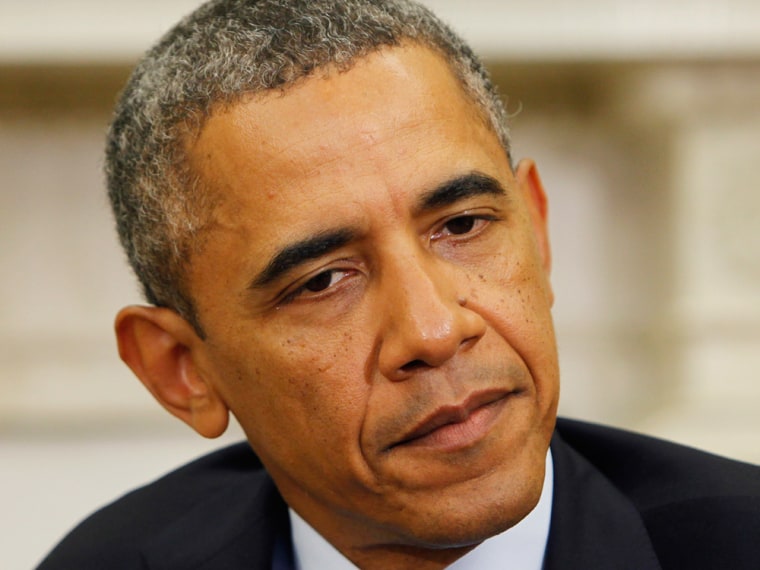President Barack Obama on Sunday defended the agreement that his administration reached with Russia to remove the chemical weapons arsenal of Syrian President Bashar Assad. And he argued that the Syria agreement could point the way to a diplomatic solution to the problem of Iran’s nuclear weapons ambitions.
Rebuffing critics such as Sen. John McCain, R- Ariz., who say the Syria accord places too much power in the hands of Russian President Vladimir Putin, Obama said on ABC’s This Week that “as a consequence of the pressure that we've applied over the last couple of weeks,” Syria had for the first time admitted that it has chemical weapons and “the Russians, their primary sponsors, (are) saying that they will push Syria to get all of their chemical weapons out”
He said, “The distance that we've traveled over these couple of weeks is remarkable.”

Obama said the teamwork with Russia in the Syria crisis had opened the way for potential cooperation with the Iranian regime.
“If, in fact not only Russia gets involved” in negotiations about Syria “but if potentially Iran gets involved as well in recognizing that what's happening there is a train wreck that hurts not just Syrians but destabilizing the entire region...we can do something later” with the leaders in Tehran, he said.
He said the Iranian leaders understand that “the nuclear issue is a far larger issue for us than the chemical weapons issue, that the threat against Israel that a nuclear Iran poses, is much closer to our core interests, (and) that a nuclear arms race in the region is something that would be profoundly destabilizing.”
He said “the Iranians recognize they shouldn't draw a lesson that we haven't struck (Assad) to think we won't strike Iran…. What they should draw from this lesson is that there is the potential of resolving these issues diplomatically.”
While acknowledging that negotiating with the Iranians “is always difficult,” he said, “if you have both a credible threat of force, combined with a rigorous diplomatic effort… you can strike a deal.”
Appearing on NBC’s Meet the Press, McCain was scathing in his criticism of Obama’s Syria policy and especially of Obama for not doing more to support the rebel armies trying to topple Assad from power.
He predicted that the Russians would veto any attempt in the UN Security Council to authorize an attack on Assad if he fails to comply with the disarmament agreement. “It’s now in the hand of Russia to decide whether Bashar Assad is really complying or not” with the disarmament accord. That reliance on Putin “is a very, very big gamble.”
McCain also said Obama’s previous threats to attack Assad were not credible and any attack by Obama would have been so limited that it wouldn’t have had any significant effect on Assad.
McCain noted that Putin has not even acknowledged that the Assad regime has used chemical weapons. “There is not a seriousness on the part of the Russians,” he said.
Even if the U.S. -Russia accord works and the Russians do help remove the chemical weapons from Syria, they will be simultaneously flying in “planeload after planeload” of conventional weapons to shore up the Assad regime in its war against the rebels, McCain said.
Visiting Israel Sunday to confer with Prime Minister Benjamin Netanyahu, Secretary of State John Kerry said “the threat of force is real” if Assad’s regime does not comply with the U.S.-Russia accord and give up its chemical weapons.
The agreement announced by Kerry and Russian Foreign Minister Sergei Lavrov Saturday in Geneva does not call for a cease fire in the civil war that has been raging for two years between the Assad regime and a variety of rebel groups.
The accord sets ambitious goals. For instance, it gives the Assad regime just a week to provide a list of its chemical weapons and where they’re stored and produced.
If the regime doesn't comply, the agreement says the UN Security Council “should impose measures under Chapter VII of the UN Charter” which allows economic sanctions, blockades, and the use of military force.
But Russia has veto power in the Security Council as one of its permanent members and could block any attempt to give UN blessing to use of force by the United States.